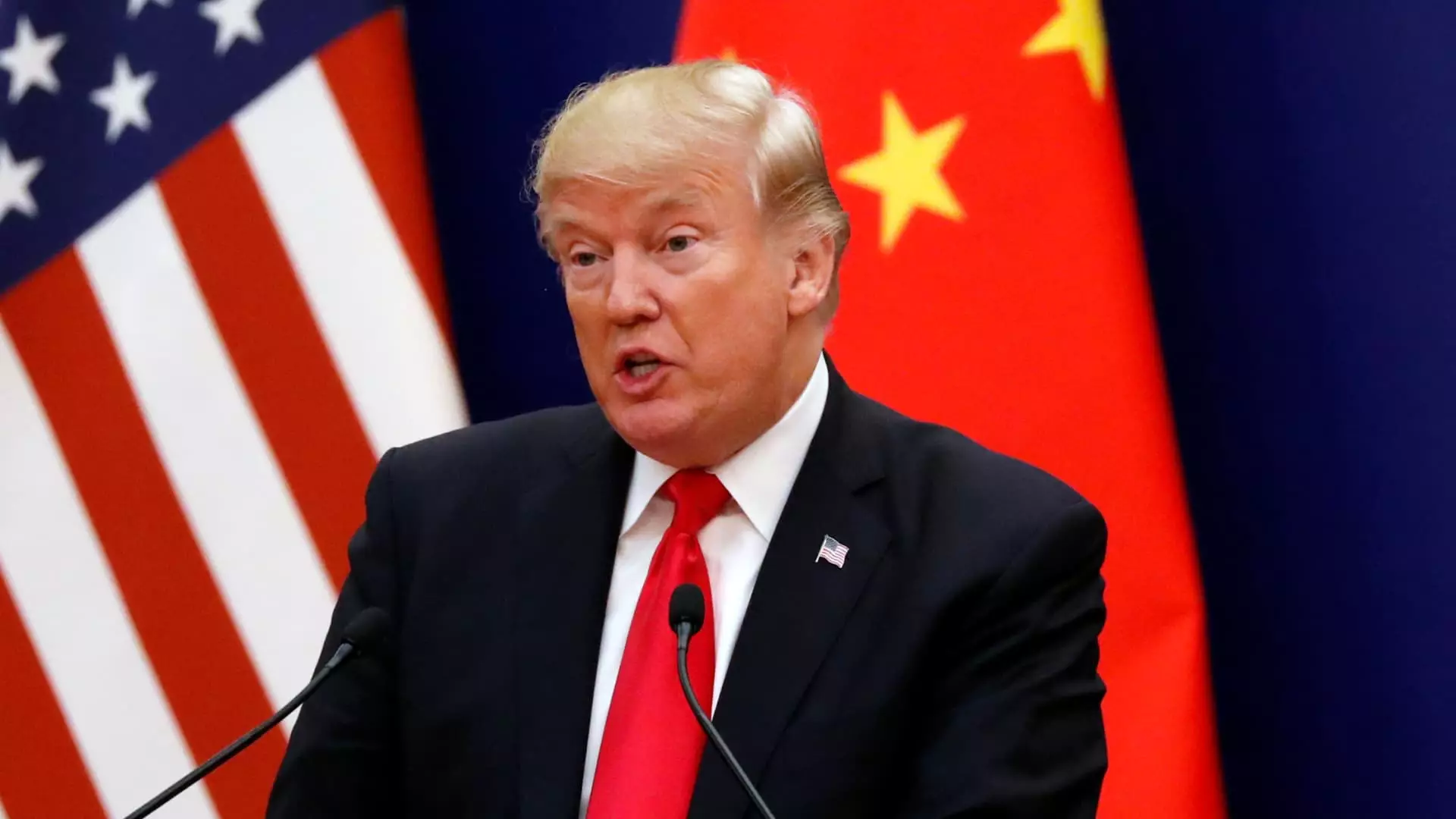Former President Donald Trump has long been an advocate for tariffs as a means to protect American industries from what he perceives as unfair trade practices by other countries. In a recent CNBC interview, Trump reiterated his belief in the effectiveness of tariffs not only economically, but also politically. He has made it clear that if he were to win a second term, he would likely reinstitute tariffs on foreign goods entering the U.S., claiming that they provide power in dealing with other countries.
During his time in office, Trump imposed a variety of tariffs on countries such as China, Mexico, and the European Union. One of the most notable tariffs was the 25% duty on imported steel and aluminum. While Trump argues that these tariffs were necessary to protect American industries, critics argue that they make imported goods more expensive, leading to potential inflation. Despite this, inflation remained subdued during Trump’s presidency, with the consumer price index rising less than 8% total over his four-year term.
Trump specifically targeted China with tariffs, accusing the country of taking advantage of the U.S. steel industry. He imposed a 50% tax on China’s steel imports, claiming that it was necessary to protect American workers. Trump also expressed his intention to target the Chinese automobile industry, suggesting that tariffs could incentivize China to build more car plants in the U.S. rather than importing vehicles.
Challenges with Tariffs
While Trump sees tariffs as a simple solution to bring back American companies and jobs, critics argue that they can have negative repercussions. In addition to making imported goods more expensive, tariffs can also lead to retaliatory measures from other countries, potentially sparking trade wars. The long-term impact of tariffs on the economy remains uncertain, as they can disrupt global supply chains and hurt consumers in the form of higher prices.
The debate over tariffs is complex and multifaceted. While some argue that they are necessary to protect American industries, others suggest that they could have unintended consequences. It is crucial for policymakers to carefully weigh the potential benefits and drawbacks of tariffs before implementing them. As the conversation about trade policies continues, it is important to consider all perspectives and analyze the long-term effects on the economy and global trade relations.


Leave a Reply